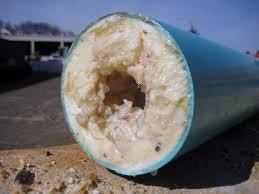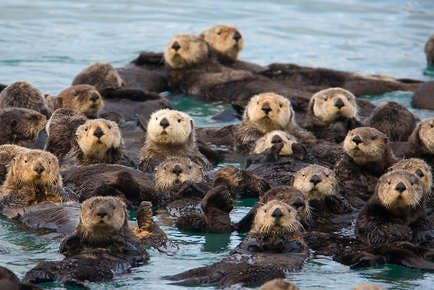What Not to Flush
Carmel Area Wastewater District values collaboration with the customers we serve. The most impactful way is for everyone to make a habit of only flushing bodily waste and toilet paper down our toilets. Using a toilet like a trash is the main cause of backups and clogs in your home. It also causes trouble in our sewer lines and our treatment system. More importantly it can be extremely dangerous to our environment, our beautiful coastal waterways, the ocean and to wildlife. This is something we take very seriously.
In order to help everyone we have outlined the items that you should never flush and the reasons why.
Download our helpful flyer for a quick guide of what should not be flushed.
What NOT to Flush.pdf

Prescription & Over-the-Counter Drugs
The wastewater treatment process does not completely remove drugs so traces will end up in our bay. Our community offers many safe disposal options for drugs that protect you, your family, and our waterways.
These locations accept both controlled* and non-controlled drugs (home-generated drugs only):
- Carmel Police Department- location at Junipero Avenue & 4th Avenue, Carmel-by-the-Sea (24-hour lobby)
- Community Hospital of the Monterey Peninsula (CHOMP)- location at 23625 Holman Highway, Monterey (24-hour receptacle near the entrance)
- Seaside Police Department- located at 440 Harcourt Avenue, Seaside (Monday-Saturday, 7 a.m. to 7 p.m.)
Disposal Tips: (1) Remove personal information from container labels or combine pills and capsules and seal in a plastic bag. (2) Leave liquids and creams in their original containers (black out personal information) and seal in a plastic bag.
*Controlled drugs include sleeping pills, pain killers, behavioral drugs, cough syrup with codeine, and other drugs with great potential for abuse or addiction (see complete list).
Controlled Substances List.pdf
Fats, oils and grease
Fats, oils and grease should never be poured down any drain or toilet. It may look like a liquid that can easily be dumped down a drain or flushed, but when it cools, it will congeal and clog up pipes. Instead collect them and throw them in the trash.

Wipes
Any wipes should not be flushed, even those that say they’re flushable. Baby, cleaning, facial and moist flushable wipes do not disintegrate the way toilet paper does. All these different wipes should be disposed of in the trash.

Don't flush paper towels! You'll end up with a call to the plumber

Disposable diapers, nursing pads or feminine hygiene products
These items are designed to expand so flushing them down a toilet will only lead to guaranteed clogs of your sewer line system and further down the system as well. Please dispose of these in the trash.
Condoms
These are also not designed to break down in water, so flushing them can cause clogs in toilets.
Paper towels, rags & tissues
You may think that paper towels or tissues aren’t very different from toilet paper, but they’re not designed to break down the way toilet paper does. In the event you need to use either in place of toilet paper, please place them in a wastebasket. Rags are not to be flushed either for the same reasons.
Cigarette butts
Flushing cigarette butts down the toilet flushes toxic chemicals into the water and into our eco system. They also can accumulate and clog our system.
Needles/syringes
Never flush sharps as they can injure wastewater workers and can potentially spread disease. Please dispose of syringes, lancets and EpiPens safely. Some disposal options are as follows:
- Community Hospital of the Monterey Peninsula (CHOMP)- located at 23625 Holman Highway, Monterey (24-hour receptacle near the entrance)
- CVS Pharmacy - located at 6 Crossroads, Carmel, purchase of a needle collection and disposal system.
- Drug company take-back programs: ask your doctor or see product packaging or website
- Sharps mail-back programs: MedPro, Sharps, Inc.
Cotton swabs/balls
You might think that cotton will break down, since some toilet paper is made from cotton linen (Cottonelle/Cottonsoft), but they don’t. They will clump together, causing stoppages at bends in the pipes.
Bandages
Dental floss and hair
Floss is not biodegradable and can cause serious clogs and environmental damage. Floss turns into a net when flushed, catching and holding onto other debris. Like dental floss, hair forms a sort of net when you flush it down the drain and gets caught, plus, it floats, and it never dissolves in water.
Kitty litter
Some brands of kitty litter claim to be flushable, but most toilets don't use enough water to move the litter along properly in your pipes. It also adds more things to the water and makes it harder to purify. Cat waste from the litter box should also not be flushed, because the litter dehydrates the waste and toilets are meant to flush water-soluble waste.
Household hazardous wastes
Many common products contain hazardous chemicals that can pollute our groundwater, creeks, rivers, and bays.
Common hazardous waste items:
- Batteries
- Florescent bulbs
- Paints
- Cleaners
- Oil, gasoline and auto fluids
- Pest and garden
Visit the Monterey Regional Waste Management District (MRWMD) Household Hazardous Waste Facility at the Monterey Peninsula landfill in Marina to safely recycle or dispose of household hazardous waste.
This brochure provides details on hazardous materials accepted at the Household Hazardous Waste Facility.
Household Hazardous Waste brochure.pdf

